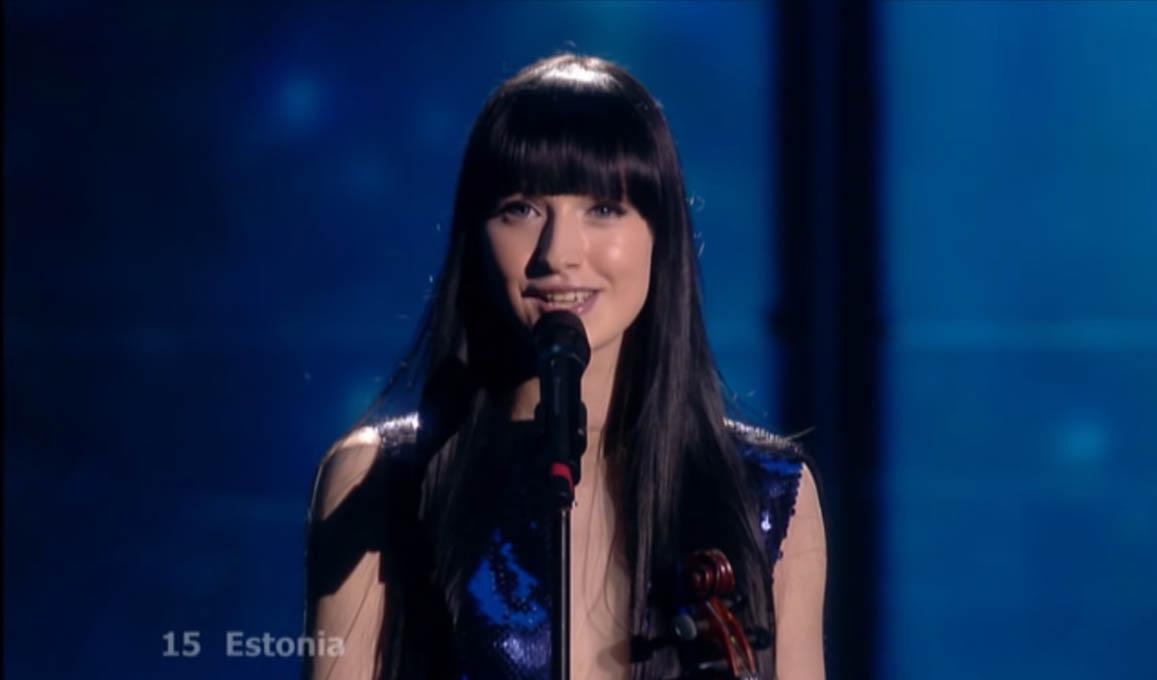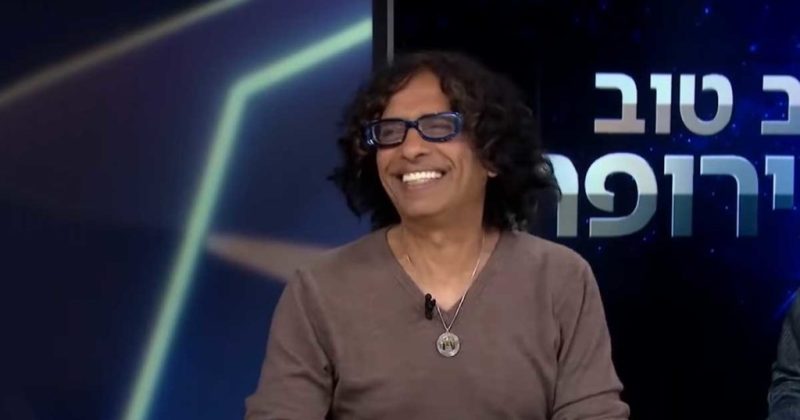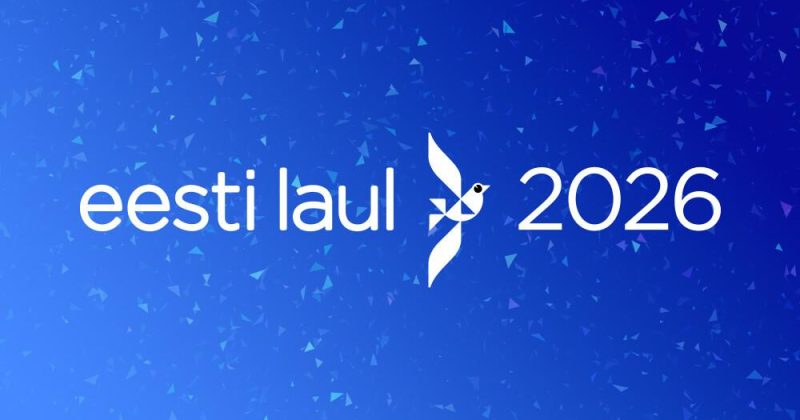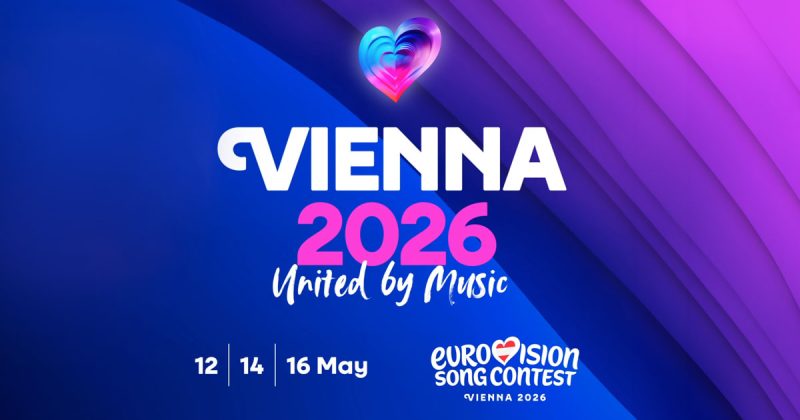
Twelve contestants for “Eesti Laul 2026” were chosen by the Estonian national broadcaster ERR and will be revealed today and tomorrow at 18:00 CET on the TV show “Ringvaade”!
The Estonian national broadcaster ERR has selected the contestants for “Eesti Laul 2026”, who will compete for the honor of representing Estonia at Eurovision 2026, to be held in Vienna, Austria. As was the case last year, the contestants will be revealed on the popular current affairs program “Ringvaade” today and tomorrow at 18:00 CET. The competing songs will be unveiled on December 4th.
Out of 171 submitted songs — 77 in Estonian and 94 in other languages — entries came from songwriters representing no fewer than 20 different countries, including Brazil and Australia. A jury of 34 singers, composers, radio hosts, television critics, directors, and representatives of music organizations selected the twelve songs that will compete in the national final. The selection process was conducted blindly, meaning the judges had no information about the artists during the listening phase. As in the previous year, there will be no semi-finals: all twelve songs will compete directly in the grand final on February 14th at the Unibet Arena in Tallinn, the same venue that hosted Eurovision 2002.
Karmel Killandi, head of the entertainment department at ERR, noted that the pool of candidates included both well-known artists who have previously graced “Eesti Laul” stage and new, surprising talents. She added that the task will be challenging this year, as Estonia hopes to achieve another strong result – especially after Tommy Cash secured third place last year, the country’s best result since 2002.
Riin Vann, the producer of “Eesti Laul”, added:
“The lineup of artists and composers who submitted songs is impressive, and considering there are only 12 places in the final, the competition will be exceptionally tight”.
How Will Estonia Choose Its Entry for Eurovision 2026?
On October 29th and 30th, following the jury’s review of all 171 entries, the twelve participants of “Eesti Laul 2026” will be officially announced through “Ringvaade” (in English: “Circular View”). Their songs will be presented on December 4th, 2025, at 20:00 CET. As with last year, the contest will not feature semi-finals – a format reintroduced in 2025 after first being used in 2010.
The voting will be conducted in two stages:
-
Audience votes combined with a seven-member international jury will determine the top three.
-
In the super-final, the public alone will decide Estonia’s entry for Eurovision 2026.
Estonia in Eurovision: Tough Start, But a Successful Resume
Estonia has participated in the Eurovision Song Contest 30 times, with one victory, one absence, and one additional occasion when their participation was canceled – in Eurovision 2020, when the entry by Uku Suviste and his song “What Love Is” was canceled due to the COVID-19 pandemic.
Estonia is considered a persistent and strong country in the competition, having been absent only once (not by their own choice), and achieving several notable successes. However, every beginning is difficult… In its debut participation in 1994, Estonia struggled and finished in 24th place out of 25 countries, a result that caused its only absence from Eurovision in 1995. But with its return in 1996, Estonia recorded several impressive and high achievements, including the victory by Tanel Padar, Dave Benton, and the duo 2XL at Eurovision 2001, and Sahlene’s third place on home ground the following year. With the introduction of semi-finals, Estonia experienced five difficult years in the competition, failing to qualify for the final in every contest between 2004 and 2008.
 Ahead of Eurovision 2009, Estonia changed the name of its national selection contest. Change of venue, change of luck? Eurovision 2009 seemed to confirm this, as the band Urban Symphony reached sixth place in Moscow, Russia, with their song “Randajad“.
Ahead of Eurovision 2009, Estonia changed the name of its national selection contest. Change of venue, change of luck? Eurovision 2009 seemed to confirm this, as the band Urban Symphony reached sixth place in Moscow, Russia, with their song “Randajad“.
In Eurovision 2010, Estonia again failed to reach the final, but quickly recovered and began qualifying more frequently. The years were not easy, as in 2016 Estonia recorded its worst result – last place, and in 2017 its path was fraught with issues, mostly technical. However, since Eurovision 2018 Estonia has succeeded in returning and cementing its status as a successful country.
Today, Estonia manages to secure more spots in the final than to lose them, and even when forecasts are against it, Estonia keeps its head high and manages to bring its representatives to the final stage. Since 2018, Estonia has qualified for the final in six out of seven competitions held. Will Estonia continue this streak and reach the final again in Vienna? Ma Ei tea (I don’t know)…
 Estonia has won Eurovision once, at Eurovision 2001, and reached the top five four more times: twice in third place, at Eurovision 2002 and Eurovision 2025, once in fourth place at Eurovision 2000, and once in fifth place at Eurovision 1996. Estonia has also placed seven more times in the Top 10, including three sixth places (in 1999, 2009 and 2012), once seventh place (in 2015), and three eighth places (in 1997, 2018 and 2023).
Estonia has won Eurovision once, at Eurovision 2001, and reached the top five four more times: twice in third place, at Eurovision 2002 and Eurovision 2025, once in fourth place at Eurovision 2000, and once in fifth place at Eurovision 1996. Estonia has also placed seven more times in the Top 10, including three sixth places (in 1999, 2009 and 2012), once seventh place (in 2015), and three eighth places (in 1997, 2018 and 2023).
Estonia at Eurovision 2025
“Espresso Macchiato” is the name of the song performed by the singer Tommy Cash, who represented Estonia in Eurovision 2025. The singer reached third place in the grand final with 356 points. Estonia received 258 points from the televoting, placed second, and 98 more points from the jury vote, placed ninth.
This result is Estonia’s best since their third place in Eurovision 2002, 23 years ago.
Eurovision 2026: This will be Estonia’s 31st participation in Eurovision. Estonia joined the contest in 1994 and achieved its best result in Eurovision 2001 when singers Tanel Padar, Dave Benton and 2XL, won first place with the song “Everybody”.

Email: [email protected]
Phone: +972-50-9441919
Ilay Gaist is a leading Israeli content creator and writer specializing in the Eurovision Song Contest. He is a well-known commentator with extensive expertise in the contest’s history, rules, and dynamics. His passion for Eurovision drives him to deliver rich, professional, and innovative content to his audience.
Ilay holds a bachelor’s degree in Arabic and has a multilingual background. He also engages in cultural research, with a particular focus on global culinary traditions and the evolution of local cuisines around the world.








